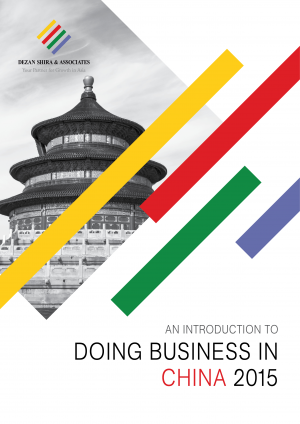China Outbound: Forecasts for 2016, Transfer Pricing Rules in ASEAN Nations
Our Latest Round-Up of Business News Affecting China-Based Businesses Investing in Asia
In this edition of China Outbound, we look into our crystal ball for foreign investment trends in 2016, featuring a piece of analysis from Andrew Polk, a senior economist, on the China business environment. We also include a piece on Myanmar’s new stock exchange, which might be the beginning of a new economic era in the country. Elsewhere, we draw attention to the transfer pricing rules in India and other ASEAN nations such as Thailand and Vietnam.
Andrew Polk’s 2016 China Economic Forecast – Weaker Growth and More Volatility to Come
2016 is set to be the most uncertain year for China’s economy since the Global Financial and Economic Crisis of 2008-2009 threw international markets into chaos and saw global trade grind to a halt. China’s domestic economy clearly remains on a weakening trend, and the government is likely to lower its official 2016 growth target down to “around 6.5 percent” from “around 7 percent” in 2015 – as actual 2015 GDP growth looks set to officially come in at about 6.8 percent.
Myanmar Opens New Stock Exchange – Beginning of New Economic Era?
On December 9, 2015, Myanmar’s new stock exchange – the Yangon Stock Exchange (YSX) – opened with big expectations. However, despite the grand opening and the US $24 million investment, the bourse will not be operational until February of 2016, or later. So is this really the beginning of a new economic era, or is the new move by the administration being rushed before the country is ready?
India Adopts Range Concept and Use of Multi-Year Data
India recently made a significant move towards aligning transfer pricing practices with global norms. The new rules, codified in October, introduced a “range concept” for determination of arm’s length pricing and “use of multiple year data” for performing comparability analysis in transfer pricing cases.
Thailand’s New Transfer Pricing Guidelines
Thailand’s vote this past May to implement a new transfer pricing law is expected to come into effect in the early part of the new year. Transfer pricing refers to the sale of goods or services between branches of a company or subsidiary companies to a parent enterprise, and most countries instate some form of transfer pricing regulations in order to ensure that sales between divisions of a company roughly mirror the cost of the same sale between separate enterprises.
An Overview of Transfer Pricing in Vietnam
Transfer pricing is a tax planning method where related companies enter into transactions among each other to shift funds, and thereby profits.
For instance, a parent company can extract funds from a subsidiary by having the issue a dividend, but the parent can also provide a service to subsidiary and charge it for the service. Dividends can only be issued after tax has been paid – after all, dividends are part of the profits.
|
Asia Briefing Ltd. is a subsidiary of Dezan Shira & Associates. Dezan Shira is a specialist foreign direct investment practice, providing corporate establishment, business advisory, tax advisory and compliance, accounting, payroll, due diligence and financial review services to multinationals investing in China, Hong Kong, India, Vietnam, Singapore and the rest of ASEAN. For further information, please email china@dezshira.com or visit www.dezshira.com. Stay up to date with the latest business and investment trends in Asia by subscribing to our complimentary update service featuring news, commentary and regulatory insight. |
![]()
 An Introduction to Doing Business in India 2015 (Second Edition)
An Introduction to Doing Business in India 2015 (Second Edition)
Doing Business in India 2015 is designed to introduce the fundamentals of investing in India. As such, this comprehensive guide is ideal not only for businesses looking to enter the Indian market, but also for companies who already have a presence here and want to keep up-to-date with the most recent and relevant policy changes. We discuss a range of pertinent issues for foreign businesses, including India’s most recent FDI caps and restrictions, the key taxes applicable to foreign companies, how to conduct a successful audit, and the procedures for obtaining an employment visa.
 An Introduction to Doing Business in Vietnam 2014 (Second Edition)
An Introduction to Doing Business in Vietnam 2014 (Second Edition)
An Introduction to Doing Business in Vietnam 2014 (Second Edition) provides readers with an overview of the fundamentals of investing and conducting business in Vietnam. Compiled by Dezan Shira & Associates, a specialist foreign direct investment practice, this guide explains the basics of company establishment, annual compliance, taxation, human resources, payroll, and social insurance in the country.
 An Introduction to Doing Business in China 2015
An Introduction to Doing Business in China 2015
Doing Business in China 2015 is designed to introduce the fundamentals of investing in China. Compiled by the professionals at Dezan Shira & Associates, this comprehensive guide is ideal not only for businesses looking to enter the Chinese market, but also for companies that already have a presence here and want to keep up-to-date with the most recent and relevant policy changes.
- Previous Article Tianjin: China’s High-tech Manufacturing and Logistics Hub
- Next Article “Old China” Vs. “New China” – The Importance of Understanding Change in the Middle Kingdom

























